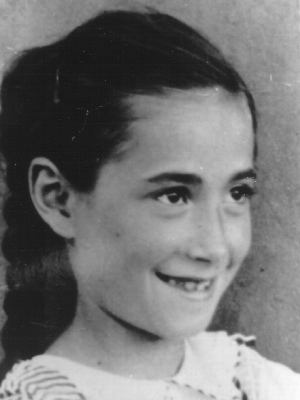
Tsila, the younger daughter of Batya (Fuchs) and Shchane Marcus, was born in Rovno, Poland. Her mother had moved there from Koretz after her marriage. The Germans invaded eastern Poland in June 1941, when Tsila was two years old.
Tsila's father, along with 8,000 other Jews from Rovno, was murdered by the Germans. The remaining Jews were locked into a ghetto where many died from starvation and disease. Tsila's sister, Bella, was murdered when the Nazis raided her apartment. Soon after, the Germans rounded up healthy young women and forced them to work as servants. Tsila's mother was assigned to work for the mayor. There, she became acquainted with a German who worked as a bookkeeper. One day, he confided that he would do everything he could to save her life. In early July 1942, Tsila's mother was told to go to her German friend's home and hide there, as the Nazis were planning to murder the remaining Jews of the city. Mass graves had already been prepared in a nearby forest. Mrs. Marcus and her daughter escaped from the city dressed as Polish peasants. Tsila and her mother walked barefoot, almost 50 miles, to Koretz, where they had relatives. After they smuggled themselves into the sealed-off ghetto, they discovered that most of Tsila's relatives, including her grandmother and aunt, had already been murdered. Two days before the Koretz ghetto was to be emptied and its residents murdered, Tsila's mother received a letter from her German friend telling her to leave the city. She immediately warned the rest of the ghetto. Many tried to escape, but they were caught and murdered.
Tsila and her mother dressed themselves again as Polish peasants and escaped to the forest. Tsila's mother eventually joined the partisans (the underground resistance fighters). Tsila was brought to live with a peasant, since it was determined that being only four years old she was too young to live in the forest. The peasant, fearing for his own life, abandoned the small child in the forest. Tsila lived in the forest for six weeks. The days and nights were very cold. She lived on flowers and grasses, and hid with every noise. Found by partisans, she was reunited with her mother. Tsila looked like a wild animal. Moss grew in her hair and she had become mute. Tsila and her mother stayed with the partisans until liberation. Tsila, who was only five years old, helped them find food in the forest when they were cut off from their supply.

